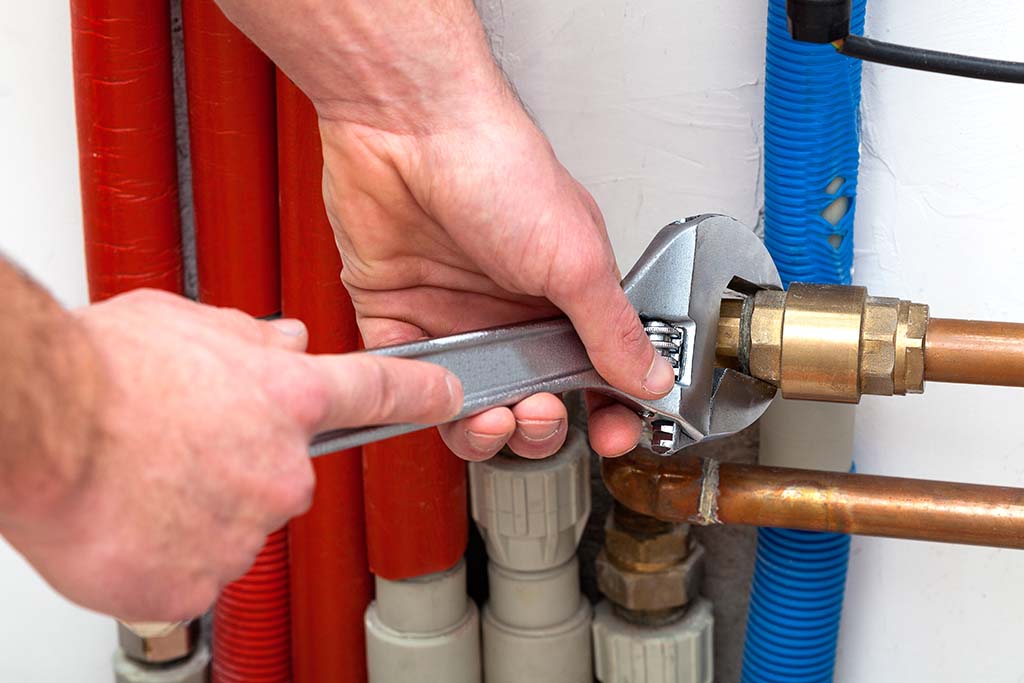What're your thoughts and feelings about General Plumbing Tips for New Homeowners?

For new homeowners, understanding and maintaining shower room pipes can save both time and money by protecting against expensive issues down the line. Below are some important shower room plumbing pointers to aid you keep every little thing running smoothly.
Plan For Winter
Secure your pipelines from freezing during winter by shielding pipes in unheated areas like cellars, attics, and garages. During extreme chilly, let cold water drip from faucets offered by subjected pipelines to aid avoid cold.
Arrange Routine Maintenance
Consider scheduling yearly examinations with an accredited plumber. They can find issues that you may miss out on, such as hidden leaks or deterioration on pipelines and components. Regular maintenance helps extend the life of your plumbing system and can prevent emergencies.
Acquaint Yourself with the Main Shut-Off Shutoff
Knowing where the main water shut-off shutoff lies in your home is essential. This enables you to quickly shut off the water supply in case of significant leaks or throughout pipes emergencies, avoiding substantial water damages.
Regularly Evaluate for Leakages
Little leaks can cause big troubles. Frequently examine under sinks, around bathrooms, and near pipes components for any kind of indications of leaks. Try to find moisture, tiny drips, or corrosion. Capturing and fixing leaks early can prevent extra severe damages and save water.
Preserve Your Water Heater
Guarantee your hot water heater is readied to a suitable temperature (typically around 120 degrees Fahrenheit) to stop scalding and reduce power use. Flush the tank each year to get rid of sediment buildup, which can minimize the efficiency and lifespan of your heater.
Update Your Fixtures
If your home has older components, consider updating to more effective versions. Modern bathrooms, showerheads, and taps are created to utilize less water while supplying great stress, which can dramatically lower your water costs and ecological footprint.
Be Cautious with Do It Yourself Plumbing Repairs
While it's appealing to manage all home repair work on your own, beware with pipes. Some problems could call for specialist knowledge, specifically if they involve main water lines or sewage system repair work. Hiring a professional can in some cases be extra affordable than do it yourself, particularly if it stops more damages.
Do Not Neglect Slow Drains Pipes
If your sink or tub is draining slowly, it's often an indication of an obstruction forming. Addressing this very early can avoid a total clog. Utilize a plunger or a plumbing's snake to clean out debris. Prevent using chemical drainpipe cleansers as they can damage your pipes gradually.
Know What Not to Flush
Commodes are not garbage disposals. Prevent flushing anything aside from toilet paper and human waste. Products like wipes, womanly health items, and cotton bud need to be disposed of in the garbage to stop clogs and sewage system back-ups.
Install Strainers in Drains
Place filters in your sink and tub drains to capture hair and other particles before they enter your pipes system. Cleaning up the strainers on a regular basis will assist avoid build-up and keep water flowing openly.
Final thought
Understanding and keeping your home's restroom pipes can avoid several usual issues. By adhering to these necessary pointers, you can guarantee your bathroom remains useful and effective, saving you time and money in the long run.
Essential Plumbing Tips for Homeowners: Keep Your Pipes Flowing Smoothly
As a homeowner, understanding the basics of your plumbing system can save you time, money, and a lot of headaches. Plumbing issues can range from minor annoyances like dripping faucets to major problems like burst pipes that cause significant damage. This guide provides essential tips to help you maintain your plumbing system and tackle common issues.
Understanding Your Plumbing System
Supply System: Brings fresh water into your home from a municipal source or a well. Drain-Waste-Vent System: Removes wastewater and vents sewer gases outside. Fixtures and Appliances: Includes sinks, toilets, showers, dishwashers, and washing machines. Basic Maintenance Tips
Regular Inspections: Periodically check for leaks, corrosion, and other signs of wear and tear. Look under sinks, around toilets, and near water heaters. Know Your Main Shut-Off Valve: In case of a major leak, you’ll need to shut off the water quickly. Ensure everyone in your household knows where the main shut-off valve is located. Prevent Frozen Pipes: In cold climates, insulate exposed pipes and let faucets drip during extreme cold to prevent freezing. Use Strainers: Install strainers in sinks and tubs to catch hair, food particles, and other debris that can cause clogs. Common Plumbing Issues and Solutions
Clogged Drains:
Prevention: Avoid pouring grease down the drain and use drain screens to catch debris. DIY Fix: Use a plunger or a plumbing snake to clear minor clogs. For stubborn clogs, a mixture of baking soda and vinegar can sometimes help. Leaky Faucets:
Prevention: Replace washers and seals regularly. DIY Fix: Turn off the water supply, disassemble the faucet, and replace worn parts.

Book Maintenance